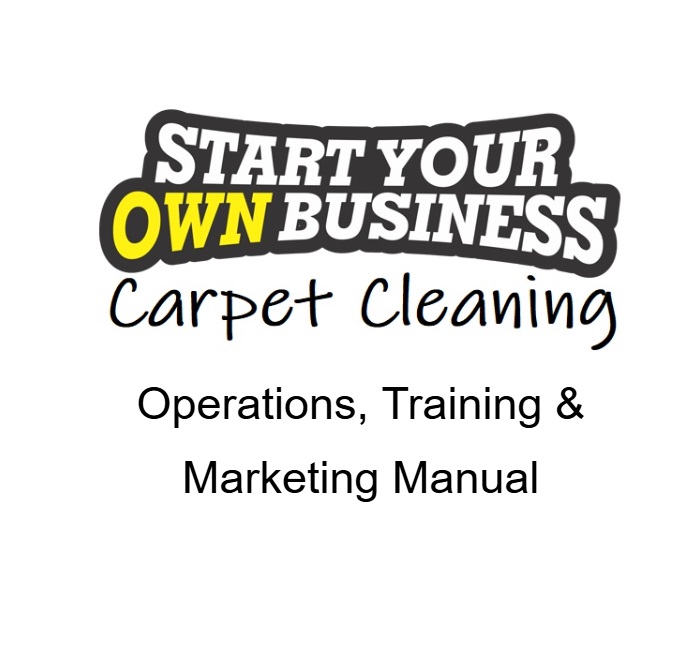Buying a carpet cleaning franchise can be an attractive option for some, but it has its drawbacks. Here are the main cons:
1. High Initial Investment and Fees
- Franchise fees and setup costs can be substantial, and carpet cleaning franchises typically have upfront franchise fees that can range from thousands to tens of thousands of dollars.
- In addition to the initial investment, there are often ongoing royalty fees and marketing fees, which can eat into profits.
2. Limited Flexibility and Creativity
- Franchisees must follow the franchisor’s business model, standards, and brand guidelines. While this consistency can be helpful, it may limit your ability to adapt to local market needs, introduce unique services, or set your own prices.
- This lack of control can feel restrictive, especially if the franchisor requires specific suppliers, equipment, or cleaning products that may be more expensive or less effective than alternatives.
3. Royalty and Marketing Fees
- Many franchises require franchisees to pay a monthly royalty fee, typically a percentage of revenue, as well as a marketing fee.
- Even if your location is not benefiting directly from national marketing campaigns, you’re still required to contribute. This can make it difficult to balance the books, especially during slower months.
4. Competition from Other Franchisees
- Most franchisors offer a limited territory, but that doesn’t always protect against market saturation. If there are other franchisees in nearby areas, you might face direct competition, and this proximity can limit your market and reduce revenue potential.
- Additionally, you may be restricted from expanding or offering services outside of your territory without permission.
5. Potential for Franchisor Issues
- If the franchisor has financial or legal troubles, it can negatively impact all franchisees. This could mean poor support, a tarnished brand reputation, or even the franchisor going out of business, leaving you to handle the aftermath.
- Some franchisors also have reputations for being overly controlling or failing to provide promised support or marketing, which can be frustrating and hinder growth.
6. Less Exit Flexibility
- Selling a franchise can be more complicated than selling an independent business. Franchisors typically have strict requirements for approving new buyers, which can limit your options when you want to sell.
- Some franchisors may also include non-compete clauses, which can restrict you from opening a similar business after selling your franchise.
7. Brand Reputation Risks
- As a franchisee, your business reputation is tied to the franchise brand. If other franchisees have poor service quality or if the franchisor faces a public relations crisis, it can damage your reputation by association.
- You may also lack control over the brand’s broader strategic decisions, which could impact your local business success.
8. Training and Support Quality Can Vary
- Although franchisors promise training and support, the quality of these services varies widely. Some franchisees may feel they are not receiving enough support or that the provided training is not specific or effective enough for their local market.
- A lack of quality support can increase the time, stress, and costs involved in running the franchise.
Overall, buying a carpet cleaning franchise can provide a head start with brand recognition and an established business model, but the associated fees, restrictions, and potential challenges should be carefully considered. If you prefer flexibility and autonomy, starting an independent carpet cleaning business might be a more appealing option.
Our low-moisture carpet cleaning process is as easy as...


Our Operations, Training & Marketing Manual is available to help YOU get starting in the carpet cleaning business.
Operations, Training, Marketing & Equipment Manual is only $499
PLUS access to Training Videos and Marketing Materials.
This extensive, detailed manual will teach you everything you need to know to open, run and scale a VLM, non-truck mounted, carpet cleaning business.
Other companies and carpet cleaning franchises charge TENS of THOUSANDS of dollars for this type of information!
* Most importantly, MARKETING!
* How to set up your website CORRECTLY,
* What to say & do to people “price shopping,”
* “Copy & Paste” text for booking jobs,
* “Copy & Paste” text for scheduling jobs,
* “Copy & Paste” texts for reminders & confirming appointments,
* How to easily get reviews, Google, Yelp, etc.
* How to scale your business,
* How to determine HOW MUCH to charge,
* What and where to get equipment and supplies, etc.
* Graphics/pictures for marketing online or in print.
* Access to training videos.
“Cliff Notes” version INCLUDED!
It comes as a digital download, but is printable and searchable too!
PLUS FREE updates and revisions for LIFE!
